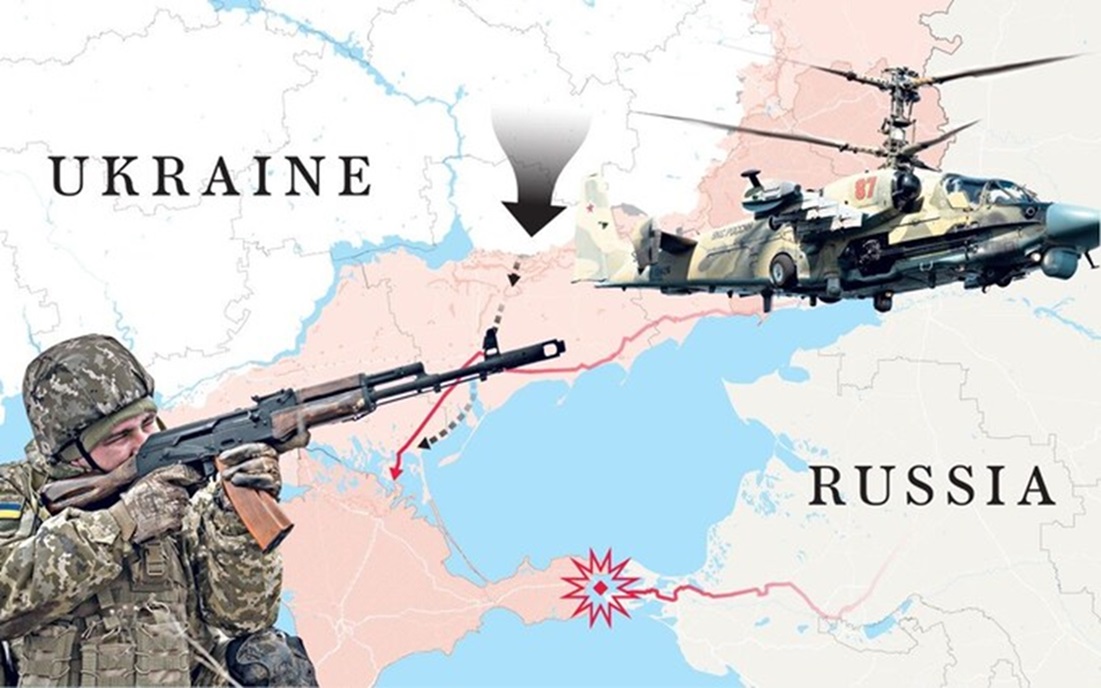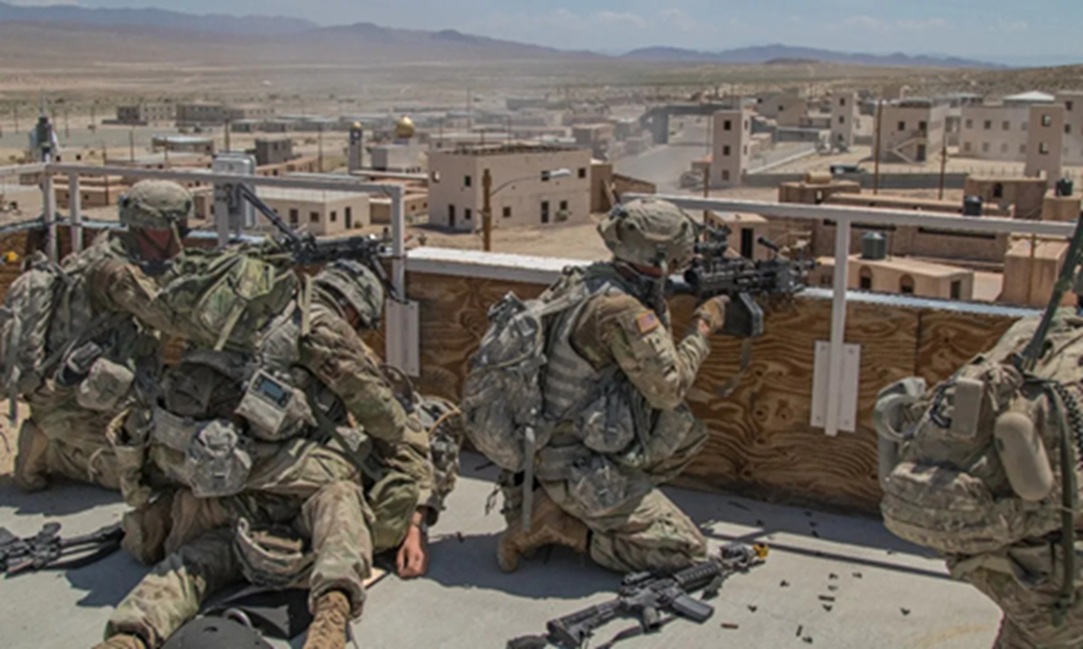The ongoing Russian invasion of Ukraine has a lasting economic impact the world over.
The Economic Consequences
The economic impact of the Russian invasion of Ukraine deserves a comprehensive analysis. The Ukrainian economy has suffered significant damage due to Russian aggression. Industrial infrastructure, including factories, power plants, and manufacturing companies, was deliberately targeted in the early stages of the invasion. This destruction has led to a significant reduction in the country’s production capacity. These deliberate attacks have historical parallels, recalling conflicts in the 20th century where industrial infrastructure was targeted to weaken the enemy.
Ukraine is a major player in global agricultural production, particularly in cereals and oilseeds. However, the Russian invasion disrupted agricultural activities in many regions, resulting in crop losses and damage to agricultural infrastructure. This situation has had an impact not only on the Ukrainian economy but also on international food markets, as Ukraine is a significant exporter. This disruption in food markets has highlighted vulnerabilities in global supply chains.
The trade disruptions caused by the conflict have had adverse effects on Ukrainian businesses. Economic sanctions imposed on Russia and Russian companies have also had repercussions on Ukraine’s foreign trade. Companies have faced significant challenges in maintaining their operations and international business relationships. These challenges have underscored the complex issues related to economic sanctions in the context of international conflicts.
Ukraine had to appeal to the international community for financial and economic support to stabilize its economy. International financial organizations such as the International Monetary Fund (IMF) have provided support by offering loans and structural adjustment programs. Ukraine’s trading partners have also sought ways to support the Ukrainian economy through trade agreements and economic cooperation. This financial support has raised questions about the viability of international financing models in conflict situations.
International Diplomacy in Response to the Russian Invasion of Ukraine
The invasion of Ukraine triggered an unprecedented international response. Many countries around the world strongly condemned Russian aggression and expressed solidarity with Ukraine. Diplomatic summits, international meetings, and negotiations were organized to find a peaceful solution to the conflict. These events underscore the importance of multilateral diplomacy in resolving global conflicts.
The United Nations (UN) played a central role in international diplomacy surrounding the Ukraine conflict. The UN General Assembly adopted resolutions condemning Russian aggression and calling for an immediate ceasefire. The UN Security Council also witnessed intense negotiations, though disagreements among permanent members hindered the adoption of a binding resolution. These disagreements highlight the challenges of UN diplomacy, especially when national interests conflict with peace imperatives. The Organization for Security and Cooperation in Europe (OSCE) was actively involved in mediation and ceasefire monitoring efforts in Ukraine. OSCE observer teams were deployed on the ground to monitor the situation and report ceasefire violations. These efforts highlighted the crucial role of observation missions in preventing human rights violations and ceasefire breaches.
The United States played a leading role in these diplomatic efforts. They sought to promote a negotiated settlement of the conflict by closely collaborating with European and international partners. Peace talks under the OSCE’s auspices provided opportunities for intensive discussions between Ukrainian, and Russian parties, and international mediators. This American involvement in international diplomacy illustrates the power of coalition diplomacy in resolving international conflicts. This international diplomacy has illuminated the complexities of contemporary international relations and the challenges of seeking a peaceful solution to a conflict of this magnitude. Resolving the Ukrainian crisis remains a major goal of the international community, with implications extending beyond Ukraine’s borders to stabilize its economy.
Analyzing these international dynamics requires reference to multiple international documents and agreements, such as the United Nations Charter, UN resolutions on Ukraine, OSCE field reports, and diplomatic statements from the United States and other key actors.
The U.S. Response – Humanitarian Aid and Political Engagement
The humanitarian assistance provided by the United States to Ukraine during the conflict was crucial in addressing the urgent needs of the affected civilian population. This assistance covered various essential areas and was meticulously implemented to achieve its humanitarian objectives. This approach underscores the importance of efficiency and coordination in humanitarian aid.
When the conflict erupted, medical infrastructure in Ukraine faced tremendous pressure due to the increasing number of casualties. The United States responded by shipping significant quantities of medical supplies, including advanced medical equipment, medications, and medical supplies necessary for treating war injuries. These supplies were essential in enhancing the treatment capabilities of local hospitals. This medical response highlights the significance of medical assistance in armed conflicts.
The issue of food supply became critical due to the conflict. The United States responded by sending shipments of food aid, including non-perishable goods, emergency food rations, and essential items. This assistance helped alleviate the immediate food needs of the population. The food response demonstrates the importance of food security in crisis situations.
The massive displacement of the population due to instability created urgent shelter needs. The United States provided emergency shelters, including tents and temporary accommodations, to help displaced people find safe refuge. These measures were crucial to ensuring minimum security and dignity for the displaced. This humanitarian action underscores the importance of protecting civilians in conflict areas.
In addition to physical needs, the conflict had severe psychological consequences for many people in Ukraine, especially children and affected families. The United States supported mental health and psychosocial support programs to help people cope with the traumas of war. These initiatives were essential in rebuilding the emotional well-being of conflict victims. The consideration of mental health in humanitarian aid reflects a holistic approach to assisting people affected by a conflict.
The United States’ political commitment to Ukraine was a major pillar of its response to the conflict. American leaders repeatedly and unwaveringly expressed their support for Ukraine’s sovereignty and territorial integrity. This stance was backed by concrete diplomatic and political actions. This approach emphasizes the importance of consistency between political discourse and actions.
In a context where international law was put to the test, the United States defended international standards by emphasizing the importance of respecting international agreements and principles of international law. This defence was crucial in establishing a legal framework in which the international community could strive to resolve the Ukrainian crisis. This reference to international law highlights the importance of adhering to rules in international relations.
The United States’ political commitment went beyond verbal statements. They worked closely with other international actors to promote a peaceful resolution of the conflict. The United States actively participated in negotiations and peace talks under the OSCE’s auspices, seeking to foster constructive dialogue between Ukrainian and Russian parties. This multilateral cooperation illustrates the power of coalition diplomacy in resolving international conflicts.
To bolster their position, the United States also imposed diplomatic sanctions on Russia in response to its aggression in Ukraine. These sanctions were designed to exert pressure on Russia and encourage adherence to international standards. They targeted key individuals and Russian companies, aiming to limit their influence and hold them accountable. This use of diplomatic sanctions underscores the available tools for enforcing international law.
Finally, the United States supported reform efforts in Ukraine, including initiatives to strengthen governance, combat corruption, and promote transparency. These reforms were essential to enhancing Ukraine’s stability and resilience while consolidating its adherence to international democratic norms. This assistance for reform highlights the importance of institutional consolidation for stabilizing conflict-affected countries.
Implications for the United States – Internal Debates and Regional Dynamics
The Ukrainian crisis sparked internal debates in the United States. Some argued for a firmer response, including military options, while others emphasized diplomacy and negotiations. These internal debates reflect the tensions between national security imperatives, the potential costs of escalating the conflict, and the importance of maintaining international stability. These internal debates underscore the complexity of political decisions in the context of an international crisis.
The situation in Ukraine also had an impact on regional dynamics. Ukraine’s neighbouring countries, including Poland, Lithuania, and Romania, strengthened their cooperation with the United States to address the crisis. This contributed to bolstering the American presence in the region and consolidating ties with NATO allies. This regional cooperation highlights the importance of solidarity among NATO member states in maintaining regional security.
Future Perspectives – Reconciliation and Reconstruction, NATO Expansion
The future of Ukraine will largely depend on the country’s ability to rebuild after the conflict. Reconciliation among different communities will be essential to ensure lasting peace. The United States and the international community will continue to support Ukraine in this critical phase of reconstruction. This phase of reconciliation and reconstruction will require long-term efforts and ongoing international cooperation.
The Ukrainian crisis has reignited discussions about NATO expansion. Some Eastern European countries have expressed interest in joining the alliance to enhance their security. The United States will need to manage these requests while maintaining stability in the region. NATO expansion raises questions about the balance between extending collective security and geopolitical concerns.
The United States’ involvement in the Ukrainian crisis has faced criticism regarding its effectiveness in promoting peace and stability in the region. Among these criticisms, the geopolitical dimension is highlighted, with alleged interference in Russia’s traditional sphere of influence, which has exacerbated tensions between the United States and Russia and complicated conflict resolution.
Additionally, the role of the United States in peace negotiations has been questioned. Some observers argue that the United States has sometimes prioritized its own interests over a balanced solution between Ukraine and Russia. Economic sanctions imposed on Russia, while crucial in the U.S. response, have been criticized for their limited impact on Russia’s behaviour, while having negative economic consequences for the United States and Europe.
Furthermore, the military assistance provided by the United States to Ukraine, while designed to strengthen the country’s defence, has contributed to the militarization of the conflict, resulting in more human casualties and suffering. This U.S. involvement has also polarized opinions in Ukraine and internationally, sometimes hindering the search for common ground among the conflicting parties.
These criticisms highlight the complexity of the U.S. approach in Ukraine and the dilemmas that international actors face when seeking to resolve a conflict as complex and sensitive as the Ukrainian crisis. Geopolitical issues, economic sanctions, military assistance, and polarization of opinions are all factors that deserve careful consideration in the context of the Ukrainian crisis.
Conclusion
The war in Ukraine serves as a powerful reminder of the complexity of international relations and the challenges the United States faces as a global actor. The American response to this conflict has illustrated the importance of diplomacy, military power, humanitarian aid, and political engagement. This comprehensive response underscores the need for a multifaceted approach to address international conflicts.
The future of Eastern Europe remains uncertain, but the United States is committed to playing an active role in promoting peace and stability in the region. The war in Ukraine is an ever-evolving chapter in geopolitical history, with implications that will continue to shape U.S. foreign and security policies.
Disclaimer: The views and opinions expressed by the author do not necessarily reflect the views of the Government of India and Defence Research and Studies
Title image courtesy: The Telegraph
References:
“Russia and Ukraine: Literature and the Discourse of Empire” by Myroslav Shkandrij – This study explores literature as a means to examine the complex relationships between Russia and Ukraine.
“The Ukrainian Challenge” by Alexander J. Motyl – An analytical work addressing Ukrainian identity and the political challenges the country faces.
“The Return: Russia’s Journey from Gorbachev to Medvedev” by Daniel Treisman – An in-depth analysis of political developments in Russia since the end of the Soviet Union.“Ukraine: State and Nation Building” by Taras Kuzio – A work that examines the challenges of state and nation building in Ukraine after its independence from the USSR.
“Putin’s Kleptocracy: Who Owns Russia?” by Karen Dawisha – This study explores the links between political power and economic elites in Russia.
“Ukraine and Russia: People, Politics, Propaganda and Perspectives” by Agnieszka Pikulicka-Wilczewska and Richard Sakwa – A collective work addressing various aspects of relations between Ukraine and Russia.
“The Ukrainians: Unexpected Nation” by Andrew Wilson – A historical and cultural exploration of Ukraine as a nation.
“The New Ukraine: A History of Europe’s Other Borderland” by Andrew Wilson – An analysis of post-Soviet Ukraine’s transition to independence and the resulting challenges.
“The Limits of Partnership: US-Russian Relations in the Twenty-First Century” by Angela E. Stent – A book that examines U.S.-Russian relations and their implications for the region, including Ukraine.
“The Crimea Question: Identity, Transition, and Conflict” by Gwendolyn Sasse – An in-depth analysis of the Crimea issue and its impact on Ukraine-Russia relations.





